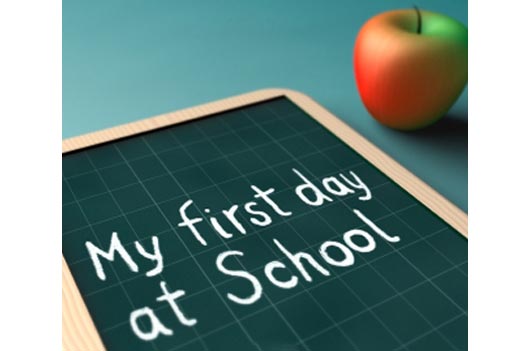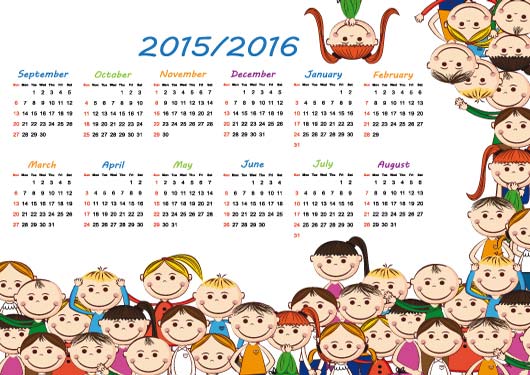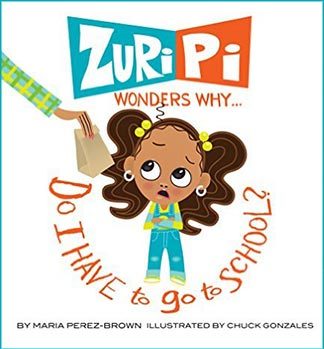
First day jitters? I spent hours preparing for my first day of school: choosing just the right outfit, sorting and re-sorting my newly-purchased supplies, carefully honing my greeting, researching the course curriculum—and sweating buckets! I wasn’t a kindergartner about to let go of my mami’s hand for the first time. I wasn’t a freshman about to step through the doors of high school. I wasn’t even a transfer student about to brave strange surroundings.
I was a new teacher about to face my first class. And—I’ll admit it—I was nervous.
On that inaugural day, I was set to meet more than 150 students, freshmen and seniors spread over five class periods. My all-important first impression would set the tone not just for the all-important first day, but for the rest of the year.
Veteran teachers had urged me to go in tough, showing no mercy – or at least no softness. Being too nice on the first day would lead to classroom misbehavior and lack of control, they warned.
Of course, that just sent my already fluttering butterflies into a tailspin.
Read Related: Preparing Your Kid for Back to School
As it was, I was at a disadvantage, coming in mid-year as a replacement for a teacher who had gone on to another job. A stutter or a misstep would brand me as an amateur; a smooth introduction would help me gain control of my students.
Just act like you know what you’re doing, another experienced teacher had counseled.
So, that morning, I stood outside my classroom door and greeted every student with a smile. Outside, I was calm and sunny; inside, I was a mass of thunderstorms.
For my first order of business, I handed out index cards and asked my students to write their names, list their favorite books and songs, and something unusual about themselves. Then I told them the same things about myself.
They were thrilled. Their previous teacher had never laughed, never joked, never shared anything about herself. She was all business, so they clapped whenever I grinned.
(On that first day, this acceptance seemed like a godsend. A few days later, when a few students assumed that affability meant an open door for anarchy, I learned why other teachers advocated coming in hard).
But that morning, I was just intent on maintaining an air of confidence—and it worked. I got through that day, and the next, and the next. By the end of the week, I had even learned most of my students’ names.
And by the end of the year, I had uncovered a trade secret: Every teacher—no matter how experienced—gets nervous on the first day of school.
As teachers, we spend much of the summer preparing for that opening class. We agonize over every detail of the day. We devote countless hours planning icebreakers and introductions; perfecting classroom policies and procedures; and arranging posters and pencils.
That first day matters because – to teachers — every day in the classroom matters.
And every teacher eventually develops a routine to start the year off right.
One high school teacher from Texas, who likes to create a “stern, but silly atmosphere,” always buys a new outfit. “It gave me confidence when I was a kid, and it is something silly I have kept doing as a teacher. I would tell kids that we are just as insecure as they are that first day.”
Another passes out index cards and allows her students to ask questions anonymously. It lets them release their own worries without fear, and creates an atmosphere of trust.
An elementary school teacher in San Antonio starts the year with a strong emphasis on expectations, as well as rules and consequences. She reviews these with parents during “Meet the Teacher Night,” held by the school the week before school starts, and on the first day with her students.
“If you set high expectations, they will rise to the occasion,” she says, adding that rules are posted so that both students and parents are aware and reminded of them. “If you’re not consistent—in meting out both rewards and consequences—the students pick up on that right away,” she says. “It’s important to get students on schedule and reinforce that they’re there to learn. That’s their job, and it’s important for them to be there.”
Cynthia Miller, an English teacher at a high school near Austin, Texas, also begins with a review of classroom rules—and a sense of celebration.
“The first day of school should be a positive celebration of the beginning of a new year,” Miller says. “I don’t try to be PollyAnna because that isn’t my style, but I do try to keep things light and positive.”
Still, Miller will never forget the first day of her first year as a teacher.
“I was pretty much given a book and a room. Everything went fine the first few classes, but in the middle of the day, the students just kept walking in—I ran out of desks! It was standing room only and I had no idea what to do,” Miller recalls. “Everything worked out by day two, but to this day I have nightmares in August about classes with hundreds of students coming in and me trying to keep them from leaving!”
See what I mean? We all get nervous.
With good reason, my students and I will spend 180 days together. In many ways, I’ll get to know them better than their parents do. I’ll see them when they struggle and when they succeed. They’ll see me when I’m full of energy and passion and when I’m tired and cranky. It will be my job to prepare them for next year, for college, for life beyond.
So, on that first day, I roll out class rules and elaborate my expectations. But I also play games and ask about their lives.
And I smile.











